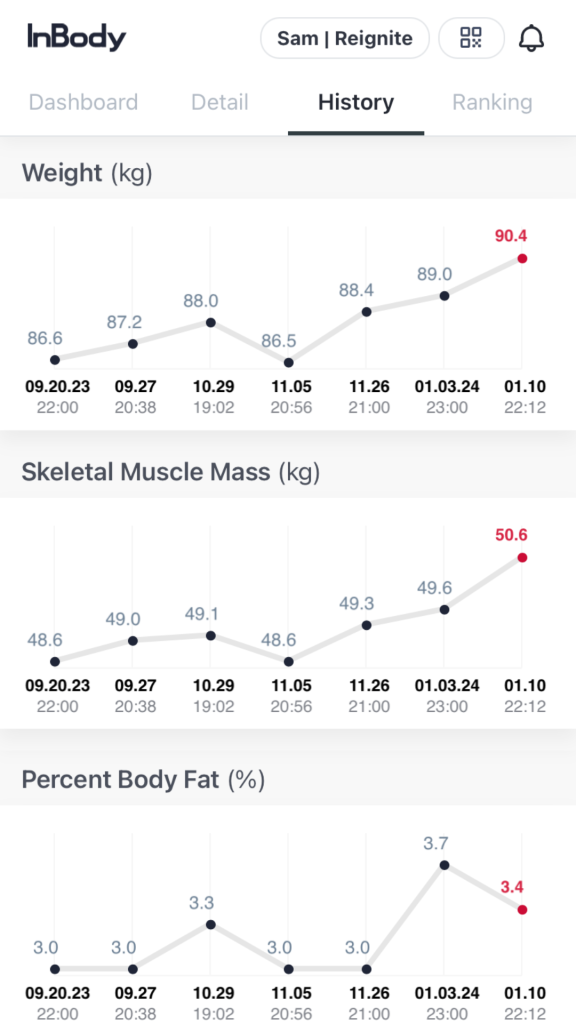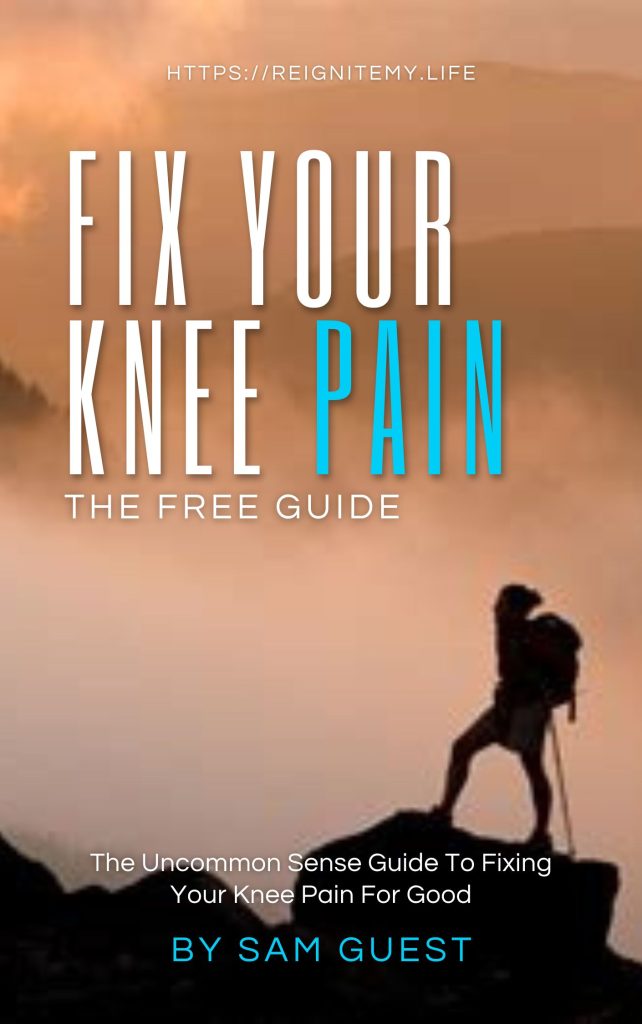Without counting calories, points or macros, going hungry or spending hours at the gym.
Calories in, calories out:
- Simple
- Easy to remember
- And often misguided to the point of being harmful.
The idea that to lose weight for good you can simply reduce the amount of calories you eat and burn more by doing exercise has been drilled into us since we first heard about dieting.
And with good reason.
Within a short time frame, in a very controlled setting, it works wonders.
Once we factor in a longer time frame and add in the pressures of the real world, its success rate drops to very close to zero.
Look at 95% of people 5 years after they have been on a calorie controlled diet and they will have regained all the weight with interest. 10 years into the future that figure rises to 99%+.
So while counting calories works over the months or years you are doing it, in almost every single case as soon as you stop doing it the weight piles back on.
You know this, I’m not telling you anything you don’t already know and have probably experienced.
In hunter gatherer times fat was a very precious resource. It was hard to keep and even harder to put on.
It acted as an essential store of energy for the inevitable periods of famine (ie. each and every winter).
The better you were at putting fat on after you lost it, the better your chances of surviving the next famine.
So the body developed some very robust mechanisms for putting fat back on after a period of famine (a calorie controlled diet is simply a period of famine by a different name).
As an example there are metabolic and hormonal mechanisms which make you hungrier whilst at the same time making you better able to put fat on again.
The fact we are still around on earth tells you how good we became as a species at doing this.
(I go into this more in this post here if you’re interested in the exact mechanisms)
Added to that, starving your body through strict calorie control leaves you in constant state of stress as your body thinks it’s being starved to death. This in turn makes you grumpy and miserable.
Weighing out every portion of food is also a damn tedious way to live!
There’s a reason diet starts with the word die!
So why do we continue to use counting calories as our baseline for dieting?
As with so many things general consensus is way behind the curve in this area.
Let’s look at a few arguments pointing to the fact that there might be a better way.
The Hamza are an indigenous people living a hunter gatherer lifestyle. They are as a rule very active. Much more so than the typical westerner.
You would expect their calorie requirements to be much higher than the average desk worker doing a 9 – 5.
In fact their average daily calorie burn is 2600, exactly the same as their equivalent sedentary worker.
Somehow (and we’re still not sure what is going on here) their body balances out their calorie requirement despite the fact they are doing a lot more exercise.
If more exercise does not raise your calorie demand like we thought it did but your body somehow manages to balance out your calorie burn regardless of how much exercise you do. simply jumping on a treadmill to burn more calories may not be the solution we thought it was.
All Calories Are Not Created Equal.
A calorie is a measurement of energy. Assuming that calories are all that matter is saying that food provides energy and nothing else.
Food does much more than that. It signals to your body in an uncounted number of ways.
Let’s compare a calorie from an Oreo to a calorie from broccoli.
In energy release they are exactly the same (1 calorie) however what about:
- Effect on blood sugar
- Nutritional value
- Digestibility
- Addictiveness
- Toxic load
And the list goes on and on…
Food has impact on health above and beyond simply the energy it provides to the body. Simply counting calories totally fails to take this into account.
This neatly sums up the BIG problem with calorie controlled diets.
They are focussed only on weight loss.
It’s very easy to be very slim and very unhealthy. It’s impossible to be healthy and overweight.
What if rather than focus on weight loss we instead focussed on health? You need to understand that weight loss is an inevitable side effect of health.
By focussing on health you avoid all the feelings of missing out, of hunger, of having to starve yourself, of feeling grumpy. You have great energy, you sleep better, your digestion becomes perfect.
And you don’t have to worry about the weight piling back on again in a few months time.

Focussing on health in my eating is how I maintain sub 10% body fat.
This idea was born from the years of my life when I was really ill. Burning the candle at both ends for way too long led to an extreme case of burnout which, combined with several other factors left me absolutely wiped out for a good 5 years.
During this period my body became very sensitive to weight gain. I could put on weight much easier than had been the case before.
For those years even a small amount of exercise left me totally whacked but then ironically unable to sleep. If I didn’t eat enough my body thought it was starving and had the same response as to exercise.
So for 5 years I avoided any form of exercise beyond short walks and ate plenty, somedays doubling my recommended calorie intake.
Over those 5 years I was able to maintain sub 10% body fat effortlessly and still do so to this day.
All through diet.
Here’s how:
Eat Clean Foods
Real food has one ingredient. An egg is an egg. Broccoli contains broccoli. That ready meal you just picked up has a list of ingredients as long as your arm most of which you can’t even pronounce. It’s not food your great-grandma would recognise.
This is not real food.
Avoid at all costs.
Eat Quality Foods
The more you worry about quality the less you need worry about calories. Whenever you have a choice go for the higher quality food. This is more important with some foods than others (quality is especially important for meat), but in general if you follow this rule you can forget about calories.
Higher quality food is more nutrient dense meaning you’ll eat less of it and promotes health much better than lower quality varieties.
Balance
Macros are important but I don’t measure them. Just make sure you’re aiming for balance in the diet. Now this is balance across a period of about a month, not necessarily day to day.
Follow your hunger (once you have your microbiome sorted). I have some days where I eat more Keto, or more carnivore or more vegan. It doesn’t really matter as long as over the course of a month I’ve had a healthy balance of macros, I’m gold.
My body will tell me if I’m missing out on something as it will make me crave it.
(Incidentally I’ll walk you through all this personally in my online program which you can check out here >>)
Variety
All food is toxic.
Meat is carcinogenic and plants contains lectins which destroy you gut.
The magic happens when you combine these foods and increase variety. Then the different compounds from the plants you are eating negate the cancer generating effects of the meat and the nutrients in meat cancel out the lectins in plants.
Too much of any food will overload the careful balance found in the body. So aim for variety to ensure you are getting a good nutrient spread and not allowing the toxins from one particular food to build up.
Eaten to excess, even broccoli is highly toxic.
Feed Your Bugs
Most of what you eat shouldn’t be for you, it’s for your bugs.
We are really a walking home for our bugs. This works in a simple way. There are many nutrients the human body cannot produce itself. Vic B, is a prime example.
When you eat certain foods your bugs get to work breaking them down. The bugs metabolites (the products they excrete after eating this food) are the very nutrients your body requires.
In addition the microbiome provides a lot of tolerance against the toxins in food.
Gluten and dairy intolerance are everywhere at the moment. These are often caused by a lack of the specific bugs which digest and break down the toxins found in these foods (gluten and casein). Once you repopulate the gut intelligently you find you can eat these foods again.
This is why the gut biome is so important.
If you keep these little guys well fed, they will repay the favour by keeping you in shining health.
What do your bugs like to eat?
Resistant starches and phenols. So we’re talking starchy tubers (potato, yuca, plantain, squash etc) and legumes (beans, lentils, chickpeas) for resistance starch. Dark coloured fruit and veg. (dark leafy greens, berries, beetroot etc) for phenols.
Add a load of these to the diet and your bugs will love you for it.
Listen To Your Cravings
Horses when left alone in a field will naturally eat the plants they need for whatever nutritional or health needs they need for that day.
If they are short in a certain vitamin they will eat a plant high in that vitamin. If they are coming down with an illness they will eat a plant which naturally boosts their immune system.
I doubt they have any idea they are doing this. They are simply reacting to what they fancy eating that day. They are being cleverly guided by their instincts to react to subtle cues in hunger.
You have the same ability you’ve probably just buried it beneath artificially induced sugar cravings.
Once you get your microbiome sorted you can start to trust your own craving and eat accordingly. Fancy eating a few spoon full of peanut butter, go for it. Desperate for a salad, its because your body needs it.
I once went through a period of about a month where I absolutely had to eat an entire litre of Crème Fraîche every day. Then one day my body decided it had had enough, I’ve never really felt the drive to eat it again.
My bugs told me they needed something, I complied and when they had enough, they took the cravings away.
Load Quantity Early In The Day
Eat most of the food you are going to eat early in the day, certainly before midday, breakfast is better.
Have a large breakfast. Include protein and fats to make this work even better.
This has the effect of reducing snacking throughout the day, balancing cortisol and blood sugar and ensures you don’t pig out in the evening when it’s more likely to ruin your sleep.
Flip Intermittent Fasting On Its Head.
If you’re going to do any sort of Intermittent Fasting, flip it on its head.
Rather than missing breakfast which is the most important meal of the day in terms of balancing blood sugar, controlling hunger and reducing stress.
Instead miss dinner.
That way you’ll sleep better as well as you’re not digesting food late at night.
Balance Blood Sugar Especially In The Afternoon
This one took me the longest time to learn.
If you have any issues with blood sugar control (if you suffer from mid afternoon crashes this is a blood sugar control problem) then know this.
Your bodies ability to handle carbs deteriorates during the day.
Eat your carbs in the morning balanced with a decent amount of healthy fat and protein (eaten within 30 mins of the carbs). Eat only fat, protein and high fibre veggies after midday.
Your afternoon crash will disappear and you’ll sleep better as a result.
These are the rules I now live by and which enable me to maintain sub 10% body fat at age 44 pretty effortlessly.

